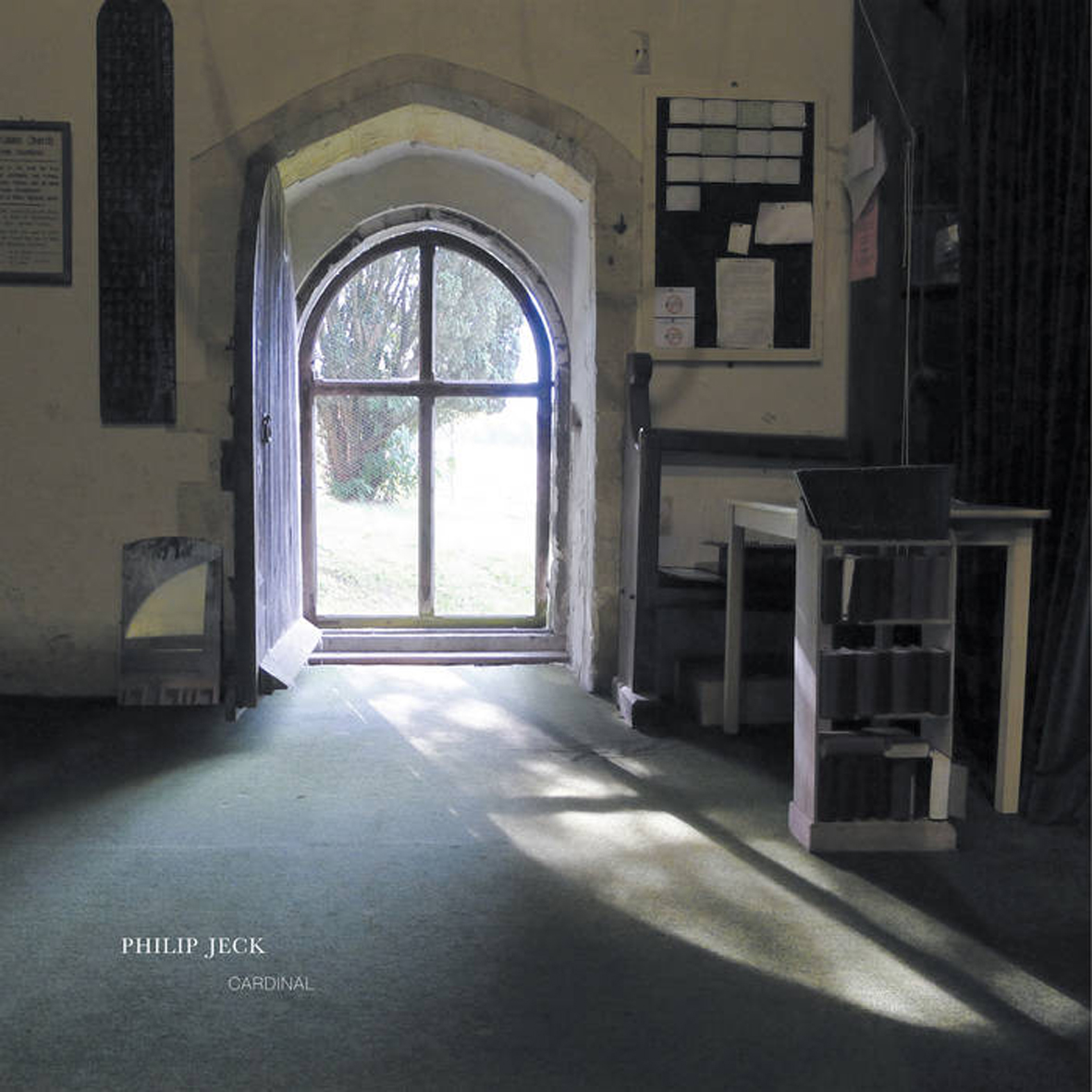 Turntable artist Philip Jeck has a long history of crafting rich and absorbing albums with a very distinctive style, so I was very much looking forward to hearing a new opus from him, especially given that he has not released anything particularly substantial since 2010's excellent An Ark for the Listener.  Sadly, Cardinal is not quite the album I was hoping for, as it is not so much a painstakingly composed masterpiece as it is a unconventional catch-all for a bunch of unreleased live highlights, soundtrack commissions, and stray home-recorded material.  Some of the pieces are quite good, so I have no qualms at all about the album being released, but Cardinal is necessarily a much more fractured, disorienting, and exhausting experience than any of Jeck's recent proper albums.
Turntable artist Philip Jeck has a long history of crafting rich and absorbing albums with a very distinctive style, so I was very much looking forward to hearing a new opus from him, especially given that he has not released anything particularly substantial since 2010's excellent An Ark for the Listener.  Sadly, Cardinal is not quite the album I was hoping for, as it is not so much a painstakingly composed masterpiece as it is a unconventional catch-all for a bunch of unreleased live highlights, soundtrack commissions, and stray home-recorded material.  Some of the pieces are quite good, so I have no qualms at all about the album being released, but Cardinal is necessarily a much more fractured, disorienting, and exhausting experience than any of Jeck's recent proper albums.
Given its wide-ranging origins, Cardinal is a surprisingly cohesive album, covering several years of performances spanning an impressive swath of the Western world (Austria, England, North America, Greece, etc.).  A large part of that success is presumably because Jeck did a lot of re-editing and reworking of the material, but these 13 pieces nevertheless feel weirdly like they belong together.  Not in the expected way, however, as Cardinal feels a lot like a deliberately misassembled jigsaw puzzle.  That seems to have been a curious and intentional move on Jeck's part, as none of pieces that are related to one another are presented together or in their original order.  For example, the live soundtrack for Guy Maddin’s Cowards Bend at the Knee is included as a Part One and a Part Five with three unrelated songs between them.  Consequently, the "Bends the Knee" pieces are not just separated from their original context, they are also decontextualized from each other and recontextualized to serve the sequencing of Cardinal.
That intentional jumbling is a very bold and counterintuitive move, which I can certainly appreciate: Jeck's strength has always been the thought and cohesiveness that goes into his compositions.  Cardinal gutsily goes in an opposite and uncharacteristically kaleidoscopic direction, which unsurprisingly yields mixed results.  On the one hand, Cardinal is a wildly unpredictable, vibrant, and varied album, as any given piece is equally likely to feature warmly crackling drones; warped experimentation; or harsh, nightmarish cacophony.  On the other hand, that means that the ground is constantly shifting under my feet as a listener.  I certainly enjoy surprises and challenging listening experiences more than most people, but one thing I have never been able to embrace has been rapid transitions between disconnected themes.  If anything can happen at any time, nothing can have much meaning.
That said, there are plenty of promising and enjoyable pieces throughout Cardinal, but they all feel like false starts or mere oases in a sea of chaos.  It is impossible to get absorbed in a piece when I know that it is doomed to never truly evolve or develop.  For example, three minutes of the cavernous and throbbing drone of "Saint Pancras" is certainly wonderful, but it would be a lot better if it segued into the rest of Jeck's St. Pancras Church performance rather than a shuddering, moaning, and ominous excerpt from the Full of Noise festival.  Jeck's music offers little in the way of rhythm, melody, or harmony, so taking away a couple of the few things that it does offer (depth and immersiveness) is bound to cause problems.  Cardinal basically feels like restlessly channel-surfing through all of the cool sounds that Jeck can create.
I recognize that such an aesthetic has its appeal (people sure seem to like Oneohtrix Point Never), but it largely leaves me cold.  I still mostly like Cardinal though, albeit in a cerebral rather than gut-level way.  Jeck definitely tried to do something different here, as this is neither another predictably stellar Philip Jeck album nor is it a mere compilation.  It is something in-between and it is also compelling art, despite its significant weaknesses as a pure listening experience.  I would probably have loved it if Jeck had made Surf, Part Two instead of Cardinal, so it is admirable that he opted not to repeat himself and chose instead to make a disorienting, precarious hall of mirrors of an album that no one saw coming.  I can respect that Cardinal is primarily an interesting experiment and a curious window into some of the artist’s darker, noisier impulses.  It may not rank among his finest releases, but the consolation prize is that it at least deepened my appreciation for Jeck's artistry and willingness to attempt some bold new twists this deep into his career.
Samples:
 
 
Read More

